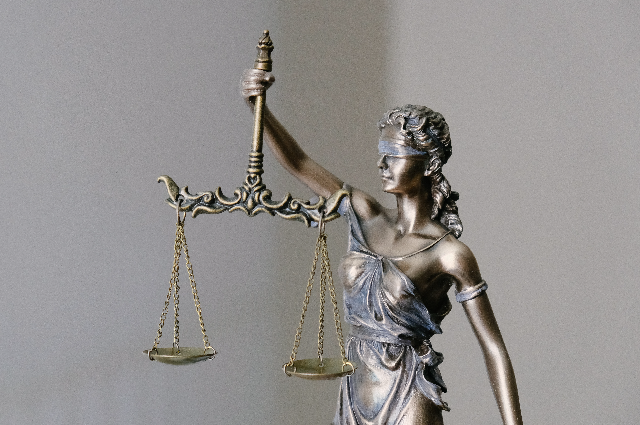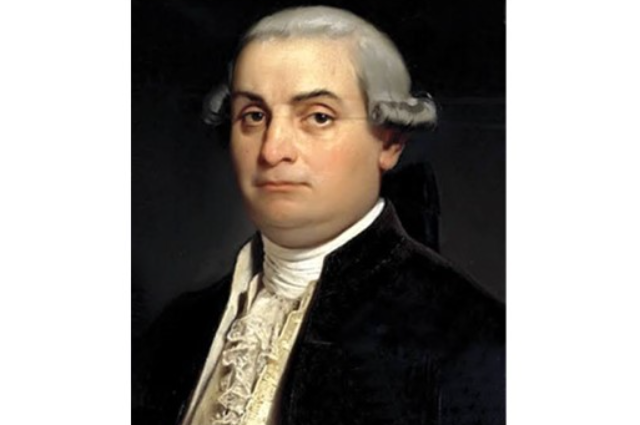The contemporary criminal law and the criminal justice system can be revamped by basing it close to the tenets of Becarria's philosophy of criminology. A bit about the great philosopher Cessare Beccaria. Born in 1738. An Italian jurist, philosopher, and criminologist of the 18th century.
Previously, the European countries had a highly strict criminal justice system as it was their belief that, Crime is a sin and is caused by demons or devils and hence in order to punish them, severe punishments were made a part of the system. When Beccaria stepped in, Europe was progressing under the waves of Enlightenment and it was at this crucial time, people started questioning about the traditional and conventional practices based on superstitions. So was the criminal justice system also questioned. It was then, Beccaria analysed the loopholes of the criminal justice system.
Beccaria in his essay, 'On Crimes and Punishment' published in 1764 questioned some of the practices prevalent in the criminal justice system of that era.
Various loopholes pinpointed by Beccaria:
- Offenders are punished ruthlessly for the crimes they had committed. Mercy was out of the vocabulary of the then criminal justice system. A remorseful spirit characterized the system.
- His essay questioned the barbaric and arbitrary nature of criminal justice system. Torture was the key-note of the system.
- Secret accusations and secret trials used to happen very often. Corruption was predominant in the system.
- There was no concept of 'Equality before law' (People of higher classes were treated differently with the people of lower classes)
Beccaria's idea and philosophy clashed with the criminal justice system of that time. He mentioned the following:

A) Only the law can prescribe punishment:
Beccaria said that the law or the legislator should only define crime and prescribe punishment accordingly. None other than the legislator should have the authority to define anything pertaining to criminal law or the criminal justice system. In almost all the world countries, punishment is defined with respect to domains of laws prevailing in that country.
B) Law should apply equally to all:
Beccaria said that both law and the punishments on infringement of laws should apply equally to all. Article 14 of the Indian Constitution also upholds the same.
C) Public making and enforcing the law:
Beccaria said that the law should be published by the public for easy and better understanding of the public. Beccaria further said that the secret trials shall be replaced by 'open and public trials' to develop transparency in the system. In the case of Parliamentary governments across the world just like as in India or Britain, the representatives of the public formulate the legislative branch in the country which is concerned with the framing of law.
D) Punishment should be proportional to the harm that the crime has caused:
Beccaria said that if severe punishments are also unable to cease the crime rates. In that case, they should be ceased altogether. The objective of punishment is not to cause pain to the offender but to prevent him from doing the crime again thereby providing a larger message to the society. In order to attain that, punishment should be certain and swift, that is, the punishment in respect of a crime should be certain and quick as that will help in lessening the prospects of any further crimes. Countries like America were influenced by his doctrines.
E) Argued against the Death Penalty:
In the view of Beccaria, the death penalty isn't the right punishment for a crime. Beccaria says, 'Death penalty is not an attempt to cease the violence initiated by the offender but is another form of violence done by the system against the offender. He says, 'State has no right to repay violence with more violence'. Gripping additions to his doctrines were made further as he regarded death penalty as a 'momentary form of punishment' not inducing much effect on the accused desisting him in the attempts to crimes. Beccaria says that 'Life Imprisonment' is the best punishment as it dreads the offender with the miserable circumstances one has to face in, after being into the clutches of the punishment. Countries like the Republic of Congo and Madagascar etc. have abolished death penalty for all crimes.
F) Beccaria finally says:
Beccaria finally says that State has no right to torture a person who is not guilty of a crime but is only in the suspicion of that. Similar is the story with the Prevention Detention Laws in India. It can happen that a person may confess a crime for a crime even though he or she has not committed it just to avoid the torture. Beccaria says that State has no right to torture a person for the simple reason,
'A person is not guilty unless he is found guilty'.The United Nations Convention regards torture as a criminal offense punishable under law . In view of Becarria, education is the most fine method to prevent the crimes happening across the world.
The concluding statement of Beccaria's work, 'On Crimes and Punishment' seems like a summarized version of Beccaria's philosophy:
Beccaria writes:
"So that any punishment be not an act of violence of one or of many against another; it is essential that it should be public, prompt, necessary, minimal in severity as possible under given circumstances; proportional to the crime and prescribed by the laws".
Beccaria's ideas are not controversial in nature in the contemporary era rather it is of much relevance in the current times. It holds paramount importance as it is mirroring the true ideals of a criminal justice system. His ideas were controversial in the time era when they were propounded for his idea majorly attacked the criminal justice system of the state. His ideas, though not original but inspired by many were a conglomeration of a variety of ideas. It was he who defined a consistent theory concerning Criminology (Study of Crime and Punishments), an important facet in the legal arena.

